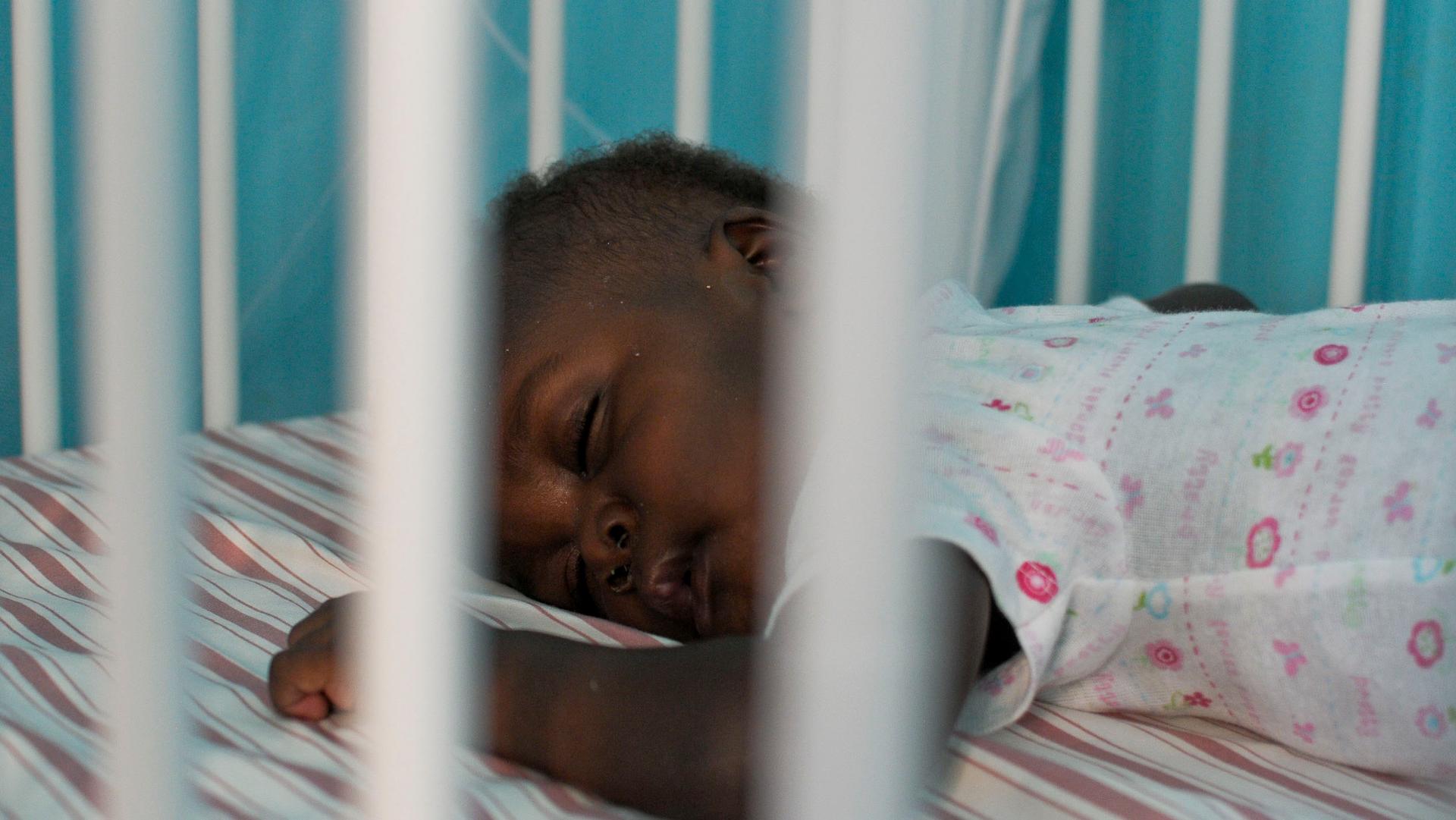There may be languages lurking in your unconscious mind
A Haitian child who will be placed for adoption sleeps in his crib at an orphanage outside of Port-au-Prince.
How much do the experiences you have as a baby shape your mind? A Canadian researcher devised a clever experiment to tease out the answer, using Canadian children who had been adopted from China.
These kids heard Chinese spoken during the first year or two of their lives, but left China before learning to speak the language themselves. “We were interested in seeing whether these children retained any neurocognitive traces of Chinese, even though they had stopped learning Chinese between 6 months and 24 months of age,” says Fred Genesee, a professor emeritus at McGill University in Montreal.
Genesee's study, published in the Proceedings of the National Academy of Scientists, suggests that hearing Chinese left an imprint on the adopted children's brains that could be detected a decade or more later — even though the kids hadn't heard Chinese again and didn't understand a word of it.
The key to the study, though, was the third group, according to Genesee. Those children were born in Canada and grew up speaking Chinese, but later began to acquire French as a second language around the same age that the adopted kids were learning French.
The children were placed in a functional MRI (fMRI) scanner to see activity in their brains. Then, each heard words that sounded like Chinese, but were not real. The words were presented in pairs: some of the pairs were identical and some of the pairs differed from one another with a slight variation in tone.
Unlike in English and French, tone is important in Chinese. If you change the tone of a word, you change its meaning. For example, the word “ma” can have a rising or a falling intonation. The tonal difference determines whether the Chinese speaker means “mother-in-law” or “horse.”
All three groups of the children easily and accurately distinguished if the pairs of sounds were identical or different, Genesee says. But the brain activity of the children didn't all look the same as they processed the audio information.
The fMRI scanner showed that the kids who had learned Chinese as a native language growing up in Canada used the left hemisphere of their brains to process the sounds. That's the side of the brain that typically handles language. No surprise there. And so did the adoptees, Genesee says, even though they hadn't heard Chinese for a decade or more.
That was surprising because the children who had never heard any Chinese in their lives showed a different pattern of brain activity. They processed the sounds using the right hemisphere of their brains. That's the side that processes sound not linked to language.
In other words, the children who had prior exposure to Chinese — whether they now spoke the language or not — were distinguishing between sounds “on the basis of language processes that occur in the brain,” Genesee says. Their brains recognized the Chinese-like sounds as a form of language. Other kids just heard them as sounds.
Infant brains are pattern recognizers, the researcher explains. Even before we are born, we start recognizing patterns.
Genesee thinks it would be interesting to test if this same infant learning effect exists for other things besides language recognition — say, for early tastes or emotions. The challenge, he says, is that it is really hard to find experiences that we only have as small children and don't ever experience again as we grow up.
This story is based on an interview that aired on PRI's Science Friday with Ira Flatow.
